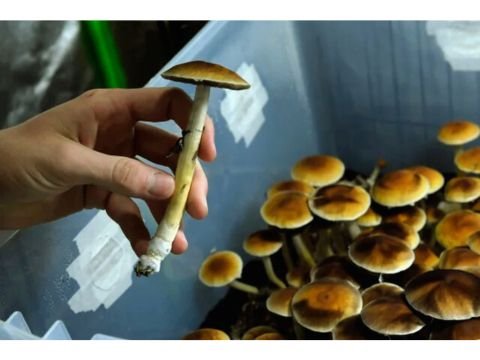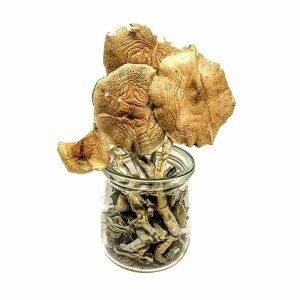Are Psychedelic Products Such as Mushrooms Legal in My State?
Psychedelics, such as psilocybin mushrooms, have gained considerable attention lately because of their possible therapeutic advantages and changing societal views. Nevertheless, their legal status in the United States is a complicated mix of regulations that differ significantly from one state to another. Grasping these intricacies is crucial for anyone looking to use or advocate for these substances.

What Are Psychedelic Products?
Psychedelics are substances that change how we perceive the world, influence our mood, and affect our thinking processes, often resulting in deep psychological experiences. One of the most recognized psychedelics is psilocybin, the active ingredient in “magic mushrooms.” Other notable examples include LSD (lysergic acid diethylamide), mescaline (which comes from peyote), and DMT (dimethyltryptamine). These substances have a long history of use in cultural and spiritual contexts, but today they are also being explored for various purposes, from recreational enjoyment to innovative therapeutic treatments.
The Federal Stance on Psychedelics
At the federal level, most psychedelics are categorized as Schedule I controlled substances according to the Controlled Substances Act of 1970. This classification indicates that they are viewed as having a high potential for abuse and lacking any accepted medical use. However, an increasing amount of research is indicating that psychedelics, especially psilocybin, may provide considerable therapeutic advantages. This growing evidence is driving initiatives to reconsider the classification of these substances at both federal and state levels.
State-by-State Legal Breakdown of Psychedelics
The legal status of psilocybin mushrooms and other psychedelics differs significantly throughout the United States. Some states and localities have decriminalized or legalized these substances for certain purposes, while others maintain strict prohibitions against them.
States Where Psychedelics Are Decriminalized
Decriminalization generally reduces or removes criminal penalties associated with the possession, personal use, or cultivation of psychedelics. It’s important to understand that decriminalization is not the same as full legalization.
- Oregon: In 2020, Oregon approved Measure 109, making it the first state to create a framework for the supervised therapeutic use of psilocybin. Furthermore, Measure 110 decriminalized small amounts of all drugs, including psychedelics.
- Colorado: With the passage of Proposition 122 in 2022, Colorado decriminalized the possession, personal use, and cultivation of specific psychedelics, such as psilocybin and mescaline (excluding peyote).
Cities Leading the Decriminalization Effort
Several municipalities have taken independent steps to decriminalize psychedelics:
- Denver, Colorado: In 2019, Denver became the first city in the U.S. to decriminalize psilocybin mushrooms for personal use and possession.
- Oakland, California: Following Denver’s example, Oakland decriminalized all entheogenic plants in 2019.
- Santa Cruz, California: In 2020, Santa Cruz decriminalized the personal use and possession of entheogenic plants, including psilocybin.
- Ann Arbor, Michigan: The city designated the enforcement of laws against entheogenic plants as the lowest priority for law enforcement.
States Maintaining Strict Prohibition
In many states, psychedelics are still illegal, carrying severe penalties for possession, distribution, or cultivation. These states follow federal laws that categorize psychedelics as Schedule I substances:
- Texas: Has strict anti-psychedelic laws, though there is increasing advocacy for reform.
- Florida: Criminalizes psilocybin mushrooms and other psychedelics, imposing harsh penalties.
- Georgia: Firmly bans the use or possession of psychedelics, including psilocybin mushrooms.
In these states, advocacy and educational initiatives are in their early stages, working to change public perception and influence policy.
The Therapeutic Potential of Psychedelics
The conversation surrounding psychedelics is evolving from mere recreational use to recognizing their potential as powerful therapeutic tools. Research has indicated that psilocybin and other psychedelics may effectively treat:
- Depression: Studies have shown notable improvements in symptoms for those suffering from treatment-resistant depression.
- Post-Traumatic Stress Disorder (PTSD): Psychedelics such as MDMA are currently being investigated in clinical trials for their capacity to assist individuals in processing trauma.
- Anxiety: Psilocybin has been shown to alleviate anxiety, especially in patients facing life-threatening illnesses.
Oregon’s Therapeutic Model
Oregon’s psilocybin therapy program, established by Measure 109, is a pioneering effort. It permits licensed facilitators to provide psilocybin in a regulated environment, giving individuals the opportunity to receive this treatment with professional oversight.
Legal Distinctions: Decriminalization vs. Legalization
Grasping the distinction between decriminalization and legalization is essential for understanding the legal landscape surrounding psychedelics:
- Decriminalization: This approach lessens the criminal penalties associated with possession and personal use, but it does not permit legal sales or production. For instance, Denver’s decriminalization of psilocybin mushrooms means that law enforcement focuses on other crimes rather than prosecuting individuals for having them for personal use.
- Legalization: This creates a regulated framework for the production, sale, and use of these substances. In the United States, this is currently restricted to therapeutic or research settings.
Advocacy and Public Opinion
Public opinion on psychedelics is changing, fueled by a growing understanding of their therapeutic benefits and a broader acceptance of alternative treatments. Advocacy organizations like Decriminalize Nature and the Multidisciplinary Association for Psychedelic Studies (MAPS) are crucial in informing both the public and policymakers about the advantages of psychedelics.
The Future of Psychedelics in the United States 
The excitement around psychedelics is hard to ignore. Several factors suggest a bright future ahead:
- Scientific Research: Ongoing studies are expected to provide more evidence of the therapeutic benefits of psychedelics, which could lead to wider acceptance and changes in policy.
- Legislative Trends: An increasing number of states are proposing bills to decriminalize or legalize psychedelics, indicating a significant shift in political perspectives.
- Federal Reclassification Efforts: Advocates are working to have psilocybin and other psychedelics reclassified under federal law to promote their medical and therapeutic use.
Navigating the Legal Landscape
For those considering the use of psychedelics, it’s crucial to be aware of the laws in your area. Always seek advice from a legal professional or check official state and local regulations to ensure you are following the rules.
Conclusion
The legal landscape surrounding psychedelics, such as psilocybin mushrooms, is changing quickly. Some states and cities are welcoming reform, while others are hesitant to adapt. It’s crucial to stay informed and support evidence-based policies to influence the future of psychedelics in the United States.